On January 31, President Ebrahim Raisi marked the “10 Days of Dawn” commemorating the 1979 revolution by warning that foreign powers were plotting to overthrow the theocracy on its 44th anniversary. In a speech at the mausoleum of revolutionary leader Imam Ayatollah Ruhollah Khomeini, he claimed, “The enemy is looking to prevent a revolution—which has passed the period of its formation, consolidation and development—from bearing fruit. But in this war of wills, God helped the companions of the Imam to introduce these ideals to the Islamic society” through sacrifice and bloodshed.
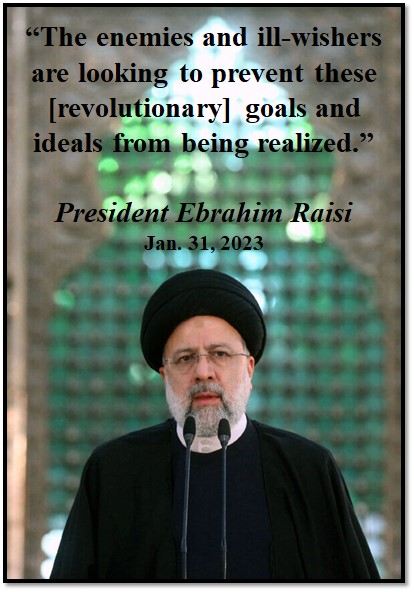 The anniversary followed five months of nationwide protests and five years of sporadic demonstrations over issues ranging from personal freedoms to the prices of eggs and gas. The regime has repeatedly blamed the United States, Israel and Saudi Arabia for igniting and fueling the unrest. “The enemies and ill-wishers are looking to prevent these goals and ideals from being realized,” Raisi said. “They do not want a new world and civilization to be formed in the name of Islam.”
The anniversary followed five months of nationwide protests and five years of sporadic demonstrations over issues ranging from personal freedoms to the prices of eggs and gas. The regime has repeatedly blamed the United States, Israel and Saudi Arabia for igniting and fueling the unrest. “The enemies and ill-wishers are looking to prevent these goals and ideals from being realized,” Raisi said. “They do not want a new world and civilization to be formed in the name of Islam.”
The 10-day commemoration marks the day Khomeini returned to Iran after 14 years in exile on Feb. 1, 1979. Over the next 10 days, the government left behind by the shah collapsed. On Feb. 11, the revolutionaries formally took over. Raisi called on young Iranians, born decades after the revolution, to embrace and emulate Khomeini.
“Today more than ever, we need the society, especially the youth, to understand the conduct and behavior, the goal and ideal of the Imam,” he said at an event attended by other senior clerics and government officials. “The reason why the Supreme Leader of the Islamic Revolution, after the demise of Imam Khomeini, comes to visit the shrine of Imam (RA) every year is because he wants to make us realize that today we should pay attention to the Imam, his character, his ways, and his conduct.”
The hardline president, who was elected in 2021, tried to be optimistic about the future, despite unrest that has killed some 500 people since mid-September 2022 and economic challenges that have left half the population living below the poverty line. “Today, our society needs hope more than anything,” he said. “We, who know the country's capacities, material and spiritual reserves, and especially the capacity of the country's efficient young manpower, know and believe that the future will be very bright.”
The commemoration brought together diverse factions of the revolutionaries. Raisi led a line of clerics, cabinet ministers, advisers, and military commanders into the shrine. They knelt and prayed next to Khomeini’s tomb. Raisi was accompanied by Seyyed Hassan Khomeini, the most prominent grandson of Imam Khomeini. The mid-ranking cleric has aligned with the reformist camp. He has spoken out against extremism, military interference in politics, widespread disqualification of candidates in elections.
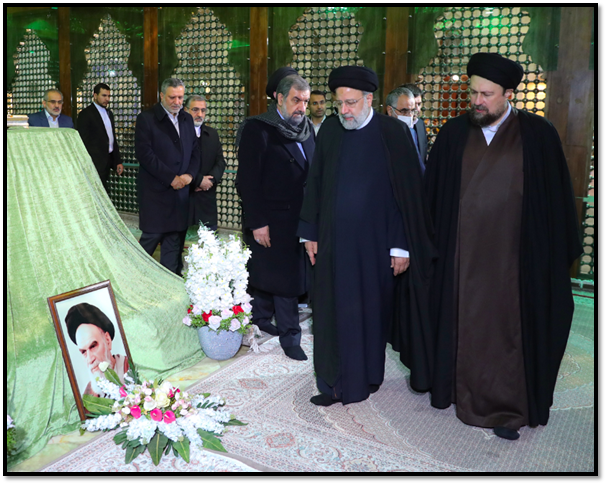
Seyyed Hassan Khomeini (right) accompanied Raisi to the tomb.
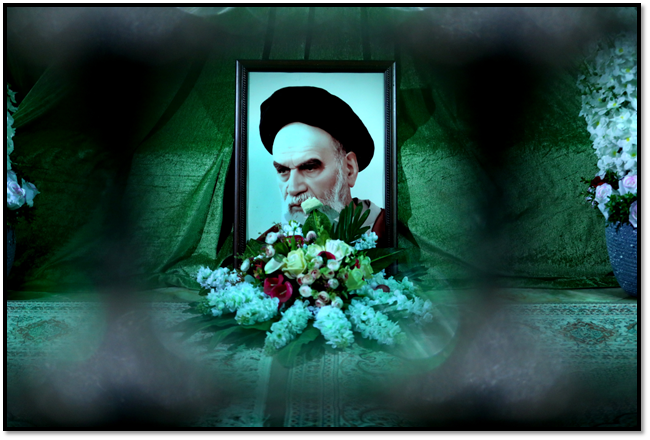
Khomeini's tomb.
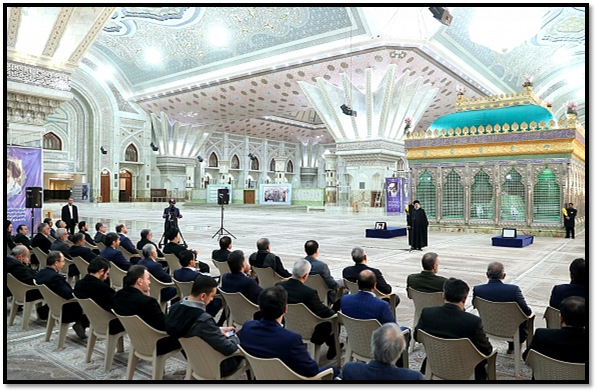
Raisi spoke to dozens of politicians, military commanders, advisers, and clerics.
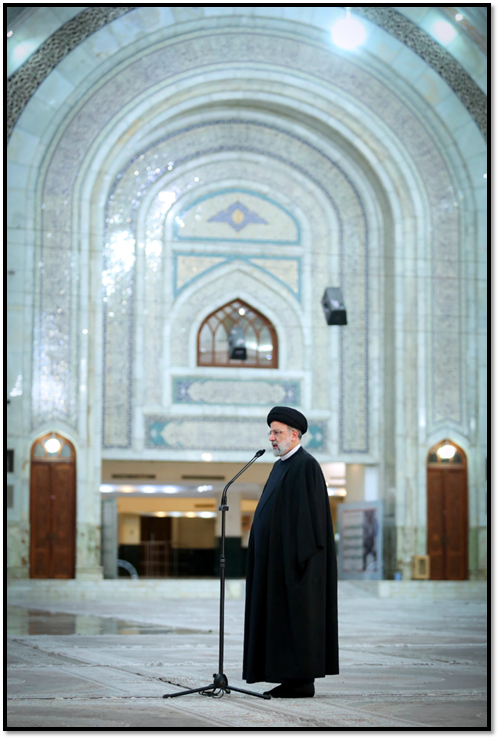
Raisi delivering his speech on Khomeini's legacy.
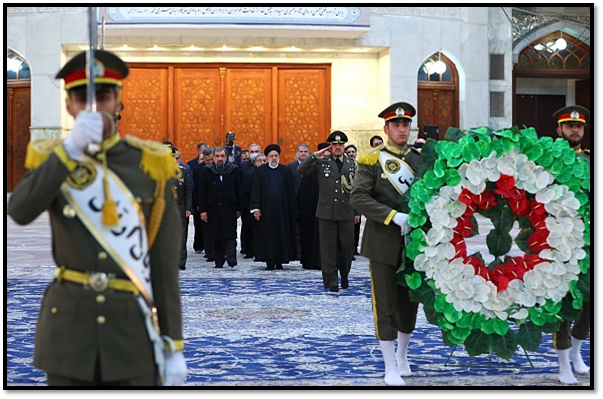
Raisi led a group of officials into the inner part of the shrine.
